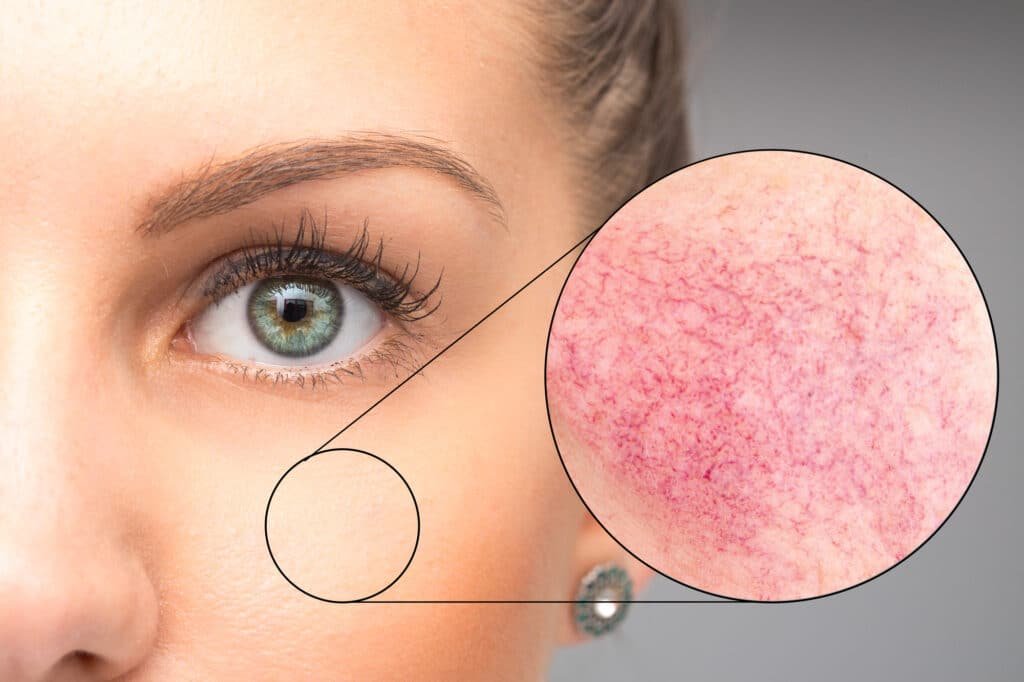
Rosacea is a chronic skin condition that primarily affects the face, causing inflammation, redness, and sensitivity of the skin. Although it is not dangerous to general health, it can have serious psychological consequences, affecting self-esteem and daily life.
Causes of Rosacea
The exact causes of rosacea are not fully understood, but there are several factors that seem to contribute to its occurrence:
- Genetic predisposition: Heredity seems to play an important role in the development of the disease.
- Vascular changes: Disruption in the normal functioning of blood vessels can lead to increased blood flow and redness.
- Uncontrolled inflammation: Inflammatory skin reactions are an important factor in the development of rosacea.
- Environmental factors: Exposure to extreme temperatures, sun, or humidity can worsen symptoms.
- Other factors: Stress, hormonal changes, and poor diet can exacerbate the condition.
Symptoms of Rosacea
Symptoms of rosacea can vary from person to person, but generally include:
- Redness: Appears mainly in the center of the face, around the cheeks, nose and chin.
- Inflammatory acne: Pimples or inflammations that resemble acne may occur.
- Vascular changes: In its most severe form, small dilated veins may appear.
- Dryness: The skin may experience intense dryness and sensitivity.
- Ocular rosacea: In some cases, the eyes may be affected, causing redness, dryness, and irritation.
Treating Rosacea
Rosacea is a chronic condition and there is no definitive cure, but symptoms can be managed with the right treatments and skin care:
- Topical medications: Creams or gels containing metronidazole or azelaic acid help fight inflammation and redness.
- Antibiotics: In severe cases, antibiotics, such as doxycycline, may be prescribed to reduce inflammation.
- Laser therapy: Lasers can be used to remove small varicose veins and reduce redness.
- Appropriate skin care products: Use mild and moisturizing facial products, avoiding harsh cleansers and products containing alcohol.
- Diet and lifestyle: Eating a healthy diet and avoiding foods that trigger flare-ups (such as spicy foods, alcohol, and caffeine) can help reduce symptoms.
Rosacea requires frequent monitoring and proper care to avoid flare-ups. Although it can be bothersome, early diagnosis and treatment can help effectively manage the condition and improve patients’ quality of life.




